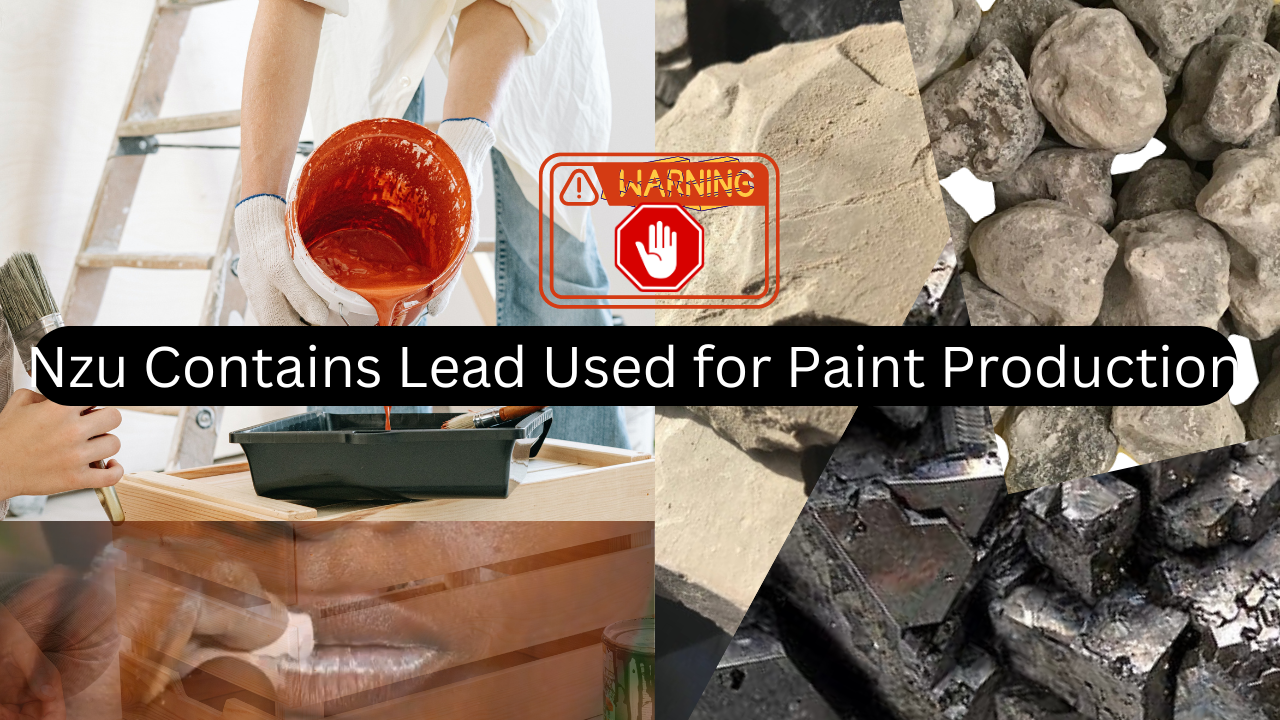
Exploring Calabash Chalk (Nzu/Ulo) In Nigeria And It’s Side Effect
In Nigeria there is this fascinating substance known as Nzu, Calabash Chalk. For centuries, Nzu/Ulo has held a special place in the lives of many Nigerians, not only for its various uses but also for the deep-rooted cultural significance it carries. In this blog, we will discover so much about chalk called Nzu/ulo, its origins, cultural relevance, composition, uses, and side effect.
Nzu or ulo, commonly referred to as Calabash Chalk, has been a part of Nigerian culture for centuries. This natural substance is primarily found in the southeastern and southwestern regions of Nigeria, particularly among the Igbo, Yoruba people etc. Its origins can be traced back to the earth itself, as it is formed through a unique geological process that involves the decomposition of various minerals and organic matter over time.

The element in calabash chalk
It is primarily made up of calcium carbonate, which gives it its characteristic chalky texture and appearance. However, the composition can vary depending on the region in which it is found in this chalk may also contain traces of other minerals like kaolin, iron, magnesium, and it also contains lead, arsenic, chromium and silica, giving it its distinctive colours and properties.
Here are some of the ways Calabash Chalk (Nzu) is used within Nigerian culture
Rituals and Ceremonies: Calabash Chalk (Nzu) plays a vital role in traditional rituals and ceremonies, including marriage, childbirth, and initiation rites. It is used to mark significant life events and symbolizes purity and protection.
Medicinal Uses: Calabash Chalk (Nzu) is believed to have medicinal properties and is used in traditional medicine to treat various ailments, including stomachaches, diarrhea, and skin conditions. It is also used to aid digestion.
Cosmetic and Decorative Purposes: Calabash Chalk (Nzu) is used for cosmetic purposes, particularly among women who apply it to their faces and bodies as a form of makeup or body paint. It is also used for creating intricate decorative designs on the skin during cultural events and celebrations.

Symbol of Identity: Calabash Chalk (Nzu) is sometimes used as a symbol of identity, belonging, and cultural pride. It is worn as body adornment during cultural festivals and gatherings.
Effect of consuming calabash chalk (Nzu)
Consuming calabash chalk, also known as Nzu or geophagy, can have various effects on an individual’s health, both positive and negative. It’s important to note that calabash chalk is not intended for consumption and is not considered safe for human consumption. However, some people still engage in this practice for cultural or traditional reasons.
Here are some potential effects of consuming calabash chalk:
What is Lead
One of the most significant concerns associated with calabash chalk consumption is lead poisoning. Calabash chalk can contain high levels of lead, which is toxic to the human body, especially to children. Lead poisoning can lead to developmental issues, cognitive problems, and other serious health complications.
Lead is a naturally occurring metal, is abundantly found throughout the Earth. It has been used in a wide variety of products including gasoline, paint, plumbing pipes, ceramics, solders, batteries, and even cosmetics. Read more

The Effects of Lead and Calabash Chalk (Nzu)
- Lead can accumulate in the kidneys and cause kidney damage, leading to hypertension and other renal problems.
- Lead can affect various organs and systems in the body, leading to a range of physical health problems. These may include abdominal pain, constipation, nausea, vomiting, joint pain, muscle weakness, and anemia.
- Lead may increase the risk of high blood pressure and heart disease.
- High levels of lead in the blood (lead poisoning) can lead to severe health complications, including seizures, coma, and even death, although such extreme cases are rare.
- Pregnant women exposed to lead can pass it on to their developing fetuses, leading to developmental delays and birth defects.
- Chewing or leaking on calabash chalk can cause dental problems, including tooth decay and erosion of tooth enamel due to its abrasive nature.
- Consuming calabash chalk may interfere with the body’s ability to absorb essential nutrients, as it can bind to minerals in the digestive tract, making them less available for absorption.
- Some individuals may become addicted to consuming calabash chalk, leading to a compulsive behaviour that is harmful to their health.
- The process of mining and preparing calabash chalk for consumption can expose it to contaminants and pathogens, increasing the risk of infections when consumed.
In general, It is essential to emphasise that calabash chalk should not be consumed, and its use as a traditional or cultural practice should be discouraged due to the significant health risks associated with it. If you or someone you know is consuming calabash chalk, it is advisable to seek medical advice to address any potential health issues and to discontinue the practice because it is highly addictive like every other substance. Encouraging education and awareness about the dangers of calabash chalk consumption within affected communities is also important.










